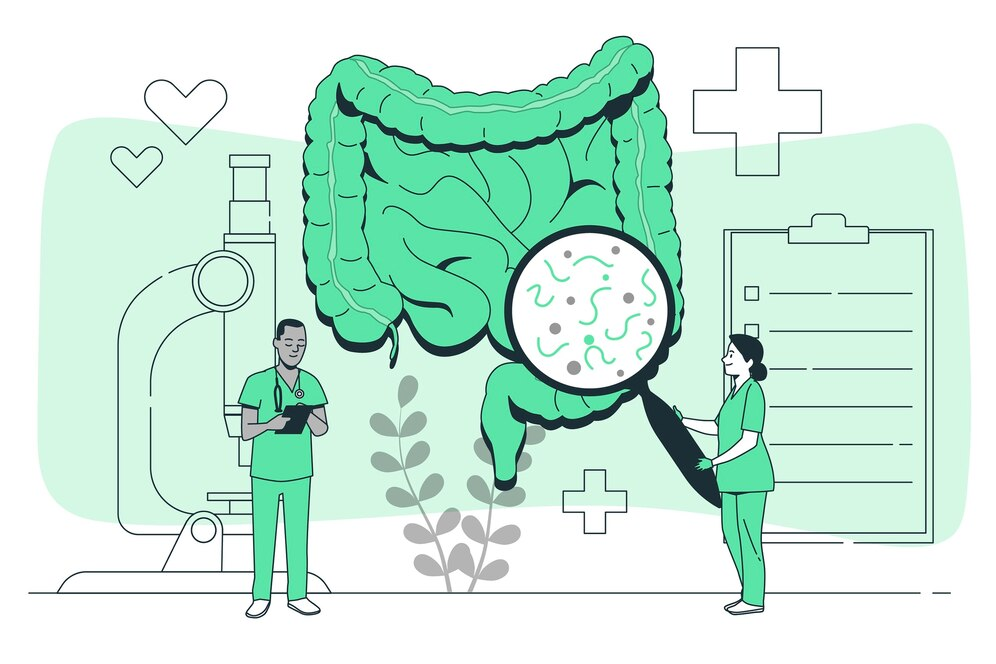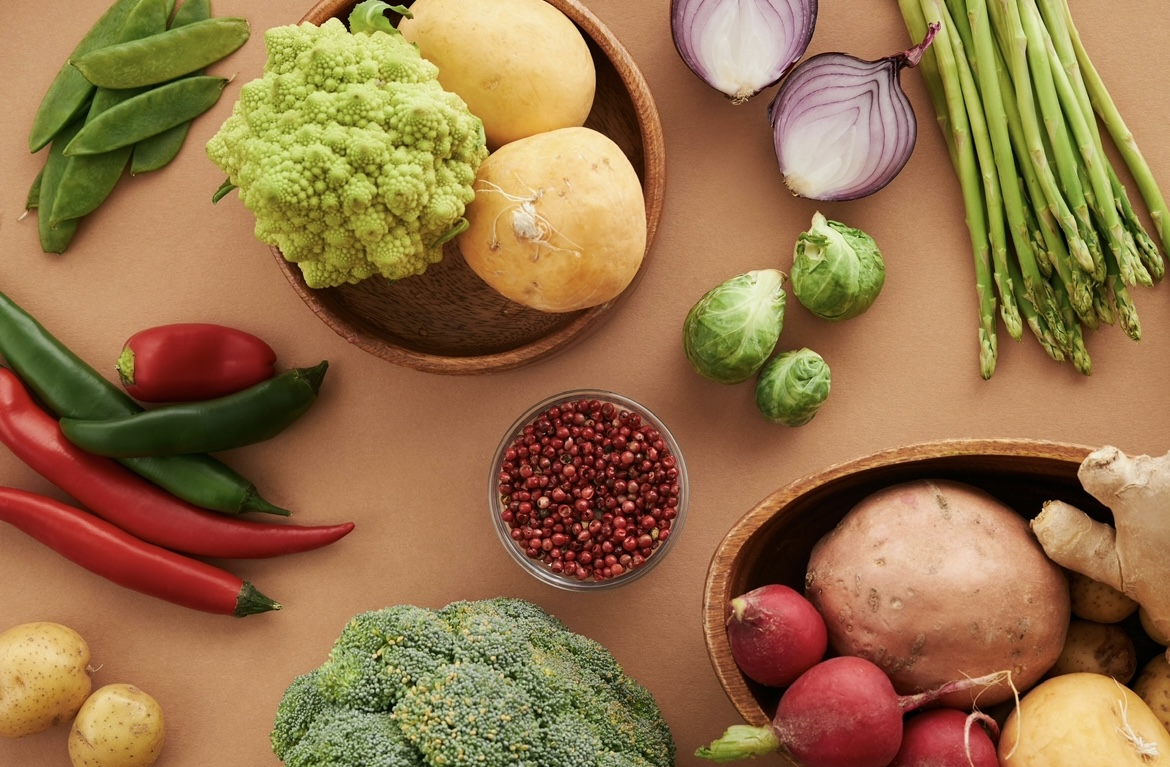
Boosting gut health: A comprehensive guide to foods and strategies
The gut is another term for the gastrointestinal tract. The organs that collectively form the gastrointestinal tract include the mouth, stomach, oesophagus, small intestine, and large intestine (which have the rectum and the anus). There are bacteria and microorganisms in your gut that help in the digestion process, they help break down food into nutrients and minerals for the body, these are called the gut microbiome.
The type of nutrition largely influences the kind of bacteria present in your gut. These gut microbiomes impact your overall health.
Understanding gut health: How your digestive system works

The digestive processes of the body take place in the gastrointestinal tract. The process begins at the mouth, where the food is chewed using saliva, after the food is swallowed, it is pushed into oesphagus. Once the food reaches the oesophagus it is conducted by a special movement called peristalsis.
Peristalsis is the wave of constriction caused by circular muscles of the gut pushing the food along, the peristalsis causes the food to enter the stomach, which further churns the food using secreted gastric juices. The food stays in the stomach for about three hours and then it is allowed to enter the intestine little by little.
The small intestine welcomes the chyme (churned food) by mixing it with bile and pancreatic juice to break it into digestible proteins, carbohydrates, and fats with the help of water. After providing essential elements to your body, the food reaches the large intestine, which again breaks into remaining nutrients and discards the waste in the form of faeces that pass into the rectum and are expelled.
Top foods to improve gut health

We learned about the functioning of the gut. Gut health is extremely important for healthy digestion, equivalent to healthy physical and mental health. We all want good health but are there ways to improve gut health? Yes! Your food intake determines your gut health, certain foods can be consumed for a happy and healthy gut.
Foods that improve your digestive system are:
- Plant-based food: Fruits and vegetables are rich in fiber and polyphenols that help in smooth digestion and facilitate a healthy gut. Fruits include bananas, pomegranate, grapefruit, and vegetables such as onion, garlic, green peas, and cabbage.
- Legumes: Chickpeas, lentils, baked beans, soybeans, kidney beans, and peas are legumes. These contain high levels of fiber and prebiotic fiber. The microorganisms and bacteria in our gut feed on these fibers and break them into essential nutrients.
- Whole grains: Quinoa, oats, barley, wheat bran, and bulger are a great source of fiber that is required for easy digestion.
- Nuts and seeds: Yet another storehouse of fiber and polyphenols, nuts and seeds serve the purpose of promoting good gut health. Almonds, walnuts, cashews, chia and sesame seeds, and pistachios can be considered.
- Water: Water plays a crucial role in digestion. It helps the intestine break down food and absorb important nutrients, therefore good amount of water should be consumed to ease the process.
Crafting an optimal nutrition for gut health

It is necessary to understand for good gut health, we need to consume good food. Foods rich in essential nutrients and fiber are required for the most important process in our body. It is recommended to consider a registered dietician for better insights and personalised nutrition fit for gut health according to your body.
Below are some key components to consider when crafting optimal nutrition for gut health
- Plant-based foods are best such as varieties of fruits and vegetables, these are rich in fiber and antioxidants important for gut health.
- Add prebiotics and probiotics to your nutrition. Prebiotics are food for good gut bacteria. Foods that have prebiotics are mushrooms, onion, garlic, and cabbage. Probiotics are beneficial bacteria that live in your gut, foods that have these are yogurt, buttermilk, and sauerkraut.
- Nutrition which has ample protein. Protein helps maintain a healthy gut lining. Foods that have a good amount of protein are fish, lentils, beans, and poultry.
- Make water your best friend! As cliche as it may sound, water is the most essential part of any process in the body. Proper hydration keeps your digestion process healthy.
- One should limit sugar and processed food. These contain unhealthy fats which disrupt the gut microbiome.
- Your lifestyle should include optimum physical activities and a stress-free environment to avoid additional obstacles.

Conclusion
Good gut health is a product of good habits, nutrition, and water intake. An unhealthy lifestyle leads to a disruption in the digestive process which can interfere with our physical and mental health. Our busy lifestyle often overshadows the fact that health is wealth. Good health should always be point number one on the list of priorities, the rest can wait. We should be mindful of our eating patterns and try to consume ‘all things natural’ as much as possible.
Frequently Asked Questions
What role does gut health play in overall wellness?
The gut plays a very significant role in overall wellness, it helps in the following processes:
- Digestive process and nutrient absorption
- Inflammation regulation
- Maintaining proper functioning of the immune system
- Metabolism of the body
Can you suggest some foods that are known to improve gut health?
Our gut health largely depends on the food intake of the body. Some foods that improve gut health are green leafy vegetables, fruits, yogurt, chia seeds, bananas, guava, onion, garlic, and almonds. These foods can be consumed regularly for better results, however, it is recommended to consult a dietician for detailed insights and analysis.
How can I enhance my digestive system through dietary choices?
Mindful choices in nutrition can help enhance the digestive system. Choosing plant-based foods rich in fiber, nutrients, probiotics, prebiotics, and polyphenols can help. These types of foods help in the proper functioning of the gut and the gut microbiome.
Are there specific diets or eating patterns that promote gut health?
Yes, there are diets or eating patterns that promote good gut health.
- Mediterranean diet: This diet focuses on eating plant-based food, such as fruits and vegetables, legumes, nuts and seeds, etc., and limits the amount of processed meat and dairy. Studies have shown that this type of diet can help improve gut health.
- Prebiotic diet: A prebiotic diet gives importance to diets that are rich in prebiotics, such as fruits, vegetables, whole grains, and legumes. Good gut bacteria feed on prebiotics.
- Probiotic diet: Probiotics are live good gut bacteria present in fermented foods such as yogurt, miso, buttermilk, etc.
What are some simple lifestyle changes I can make to support a healthy gut?
Some simple healthy lifestyle choices that are long-term investments and facilitate a healthy gut are:
- Optimum physical exercises
- Staying hydrated
- Eat more fiber and plant-based products and avoid processed foods.
- Managing stress
- Getting a good sleep









